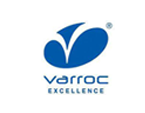B.Tech Electronics and Communication Engineering
Programme Overview
The MIT-WPU B.Tech in Electronics and Communication Engineering programme equips you with a strong foundation in electronics and communication while integrating cutting-edge technologies like Artificial Intelligence (AI), Machine Learning (ML), the Internet of Things (IoT), Very Large-Scale Integration (VLSI), and Digital Signal Processing. This programme opens doors to emerging tech job opportunities across multiple industries.
The curriculum offers a balance of theoretical knowledge and practical experience, enabling you to design, develop, and test electronic systems used in fields like telecommunications, aerospace, and healthcare. With robust industry partnerships, research-oriented labs, and a focus on innovation, MIT-WPU stands out as one of the leading institutes for Electronics and Communication Engineering in Maharashtra.
Major Tracks
- Communication Engineering - IoT
- Signal and Image Processing (Computer Vision)
- Artificial Intelligence (AI)
- VLSI & Embedded Systems
- Applied Electronics
Duration & Fees
Duration
4 Years
Applications Open for 2026
Fee Per Year
₹ 3,65,000
Scholarship
| Scholarship for AY 2026-27 | JEE Main Percentile | MH-CET Percentile |
|---|---|---|
|
Dr. Vishwanath Karad Scholarship (100%) |
94 & Above |
95 & Above |
|
MIT-WPU Scholarship I (50%) |
92 & Above |
93 & Above |
|
MIT-WPU Scholarship II (25%) |
91 & Above |
92 & Above |
Note: Best of JEE 2026 or MHT-CET 2026 Score will be considered for availing the scholarship.
Terms & Conditions Apply:
- All Scholarships are awarded on a First Come First Serve basis. All Scholarships are awarded as fee adjustments.
- To continue the scholarship for the entire duration of the programme, a minimum level of the academic score has to be maintained at an 8 CGPA across all semesters, attendance is to be maintained at a minimum of 80 percent, with no live backlogs in any subject/programme and no semester break, and there should be no disciplinary action against the student.
For more detailed information visit our website: https://mitwpu.edu.in/scholarships
Eligibility
A minimum of 50% aggregate marks in Class 10+2/ HSC, with English as a compulsory subject and A minimum of 50% aggregate marks in any one of the following subject groups:
- PCM (Physics, Chemistry, Mathematics),
- Physics & Mathematics with any Technical Vocational Subject
- PCB* (Physics, Chemistry, Biology*),
[*Biology/Biotechnology is applicable only for the Bioengineering Programme.] (Minimum 45% aggregate marks for candidates belonging to the Reserved Category from Maharashtra State).
OR
A minimum 60% aggregate marks in a Diploma in Engineering & Technology in a relevant branch from a government-approved technical board.
Selection Process
Admissions are based on the scores of JEE 2026/ MHT-CET 2026/ PERA-CET 2026, or MHT-CET-B* 2026/ NEET 2026* (*applicable only for the Bioengineering programme), along with a 500-word Statement of Purpose (SOP) written by the candidate
Programme Highlights
- Industry-Relevant Curriculum : Learn essential skills like IoT, Artificial Intelligence (AI), VLSI, and Digital Signal/Image Processing, ensuring you're prepared for cutting-edge technology applications.
- State-of-the-art Laboratories : Gain hands-on experience using advanced tools like DELL PowerEdge Servers, NVIDIA CUDA, USRP, and Real-time Spectrum Analysers.
- Industry Projects & Internships : Participate in six-month internships with top companies in telecommunications, satellite communications, and robotics, providing valuable real-world exposure.
- Holistic Education : Enhance personal development through curriculum on ethics, societal impacts of AI, and well-rounded learning.
- Research Opportunities : Collaborate on research projects with leading organisations to develop innovative solutions.
- Expert Faculty : Learn from professors with doctorates and extensive industry experience, blending theory with practical insights.
- Global Exposure : Expand your knowledge through academic study tours to international destinations, gaining insights from global experts.
Programme Structure
| Semester | Course Type | Course Name/Course Title | Total Credits |
|---|---|---|---|
|
I |
UC | Indian Constitution | 1 |
|
I |
UC | Environment and Sustainability | 1 |
|
I |
UC | Yoga - I | 1 |
|
I |
UC | Social Leadership Development Program | 1 |
|
I |
UC | Financial Literacy | 1 |
|
I |
PF | Linear Algebra and Differential Calculus | 3 |
|
I |
PF | Engineering Physics | 3 |
|
I |
PF | Basic Electrical Engineering | 4 |
|
I |
PF | Engineering Mechanics | 3 |
|
I |
PF | Programming and Problem Solving | 3 |
|
I |
PF | Python Programming | 1 |
| Total Credits: | 22 |
| Semester | Course Type | Course Name/Course Title | Total Credits |
|---|---|---|---|
|
II |
UC | Yoga - II | 1 |
|
II |
UC | Co-creation | 1 |
|
II |
UC | AI for everyone | 2 |
|
II |
UC | Foundation of Peace | 2 |
|
II |
UC | Indian Knowledge System (General) | 2 |
|
II |
UC | Sports | 1 |
|
II |
PF | Basics Electronics Engineering | 3 |
|
II |
PF | Integral Calculus | 3 |
|
II |
PF | Digital Electronics | 4 |
|
II |
PF | Engineering Chemistry | 3 |
| Total Credits: | 22 |
| Semester | Course Type | Course Name/ Course Title | Total Credits |
|---|---|---|---|
|
III |
University Core |
Research Innovation Design Entrepreneurship (RIDE) |
1 |
|
III |
University Core |
Spiritual & Cultural Heritage; Indian Experience |
2 |
|
III |
University Electives |
UE - I |
3 |
|
III |
University Electives |
UE-II |
3 |
|
III |
Programme Capstone Project/Problem Based Learning/Seminar and Internships |
Project Based Learning - I (Sensors and Actuators Lab) |
1 |
|
III |
Programme Major |
Digital Electronics |
4 |
|
III |
Programme Foundation |
Probability and Statistics |
4 |
|
III |
Programme Foundation |
Signals and Systems |
4 |
| Semester | Course Type | Course Name/ Course Title | Total Credits |
|---|---|---|---|
|
IV |
University Electives |
UE-III |
3 |
|
IV |
University Core |
Rural Immersion |
1 |
|
IV |
Programme Capstone Project/Problem Based Learning/Seminar and Internships |
Project Based Learning - II (Python Lab) |
1 |
|
IV |
University Core |
Life Transformation Skills |
1 |
|
IV |
Programme Capstone Project/Problem Based Learning/Seminar and Internships |
Data Structures and Algorithms |
2 |
|
IV |
Programme Major |
Analog Circuits and Applications |
4 |
|
IV |
Programme Major |
Communication Systems |
3 |
|
IV |
Programme Major |
Control Systems |
3 |
|
IV |
Programme Major |
Microcontroller and Applications |
4 |
|
Total |
23 |
| Semester | Course Type | Course Name/Course Title | Total Credits |
|---|---|---|---|
|
V |
University Core |
Managing Conflicts Peacefully: Tools and Techniques |
2 |
|
V |
Programme Capstone Project/Problem Based Learning/Seminar and Internships |
Project Based Learning - III (Data Science Lab) |
1 |
|
V |
Programme Electives |
Programme Elective |
4 |
|
V |
Programme Major |
IKS-2 |
2 |
|
V |
Programme Major |
Digital Communication |
4 |
|
V |
Programme Major |
Environmental Engineering II |
3 |
|
V |
Programme Major |
Power Converters and Machines |
4 |
|
V |
Programme Major |
Digital Signal Processing |
4 |
|
V |
Programme Major |
Simulation Lab (OOP) |
1 |
|
Total |
22 |
| Semester | Course Type | Course Name/Course Title | Total Credits |
|---|---|---|---|
|
VI |
Programme Capstone Project/Problem Based Learning/Seminar and Internships |
Project Based Learning - IV (Mini Project) |
1 |
|
VI |
University Core |
National Academic Immersion |
2 |
|
VI |
Programme Electives |
Programme Elective |
4 |
|
VI |
Programme Major |
Artificial Intelligence and Machine Learning |
4 |
|
VI |
Programme Major |
Computer Network and Security |
4 |
|
VI |
Programme Major |
VLSI Design |
4 |
|
VI |
Programme Capstone Project/Problem Based Learning/Seminar and Internships |
Seminar |
1 |
|
Total |
20 |
| Semester | Course Type | Course Name/Course Title | Total Credits |
|---|---|---|---|
|
VII |
Programme Electives |
Programme Elective |
4 |
|
VII |
Programme Capstone Project/Problem Based Learning/Seminar and Internships |
Internship |
12 |
|
Total |
16 |
| Semester | Course Type | Course Name/Course Title | Total Credits |
|---|---|---|---|
|
VIII |
Programme Electives |
Programme Elective |
4 |
|
VIII |
Programme Capstone Project/Problem Based Learning/Seminar and Internships |
Capstone Project |
13 |
|
Total |
17 |
Career Prospects
Electronic Design Engineer
Telecommunications Engineer
VLSI Engineer
Embedded Systems Engineer
RF Engineer
Control Systems Engineer
Avionics Engineer
Instrumentation Engineer
Research and Development Engineer
Entrepreneur
Programme Outcomes
- Design and simulate/demonstrate electronic communication systems using basic engineering principles of electronics, microwave, signal processing, and design.
- Use contemporary engineering tools to analyse, design, and simulate embedded systems, IoT devices, and communication networks.
- Solve real-life engineering problems related to telecommunication, robotics, and automation with sustainable and efficient solutions.
- Interact across diverse subject teams and demonstrate project management experience in industry projects.
- Collaborate within teams with a sense of ownership and professionalism in technology development while practising ethics.
Placements & Recruiters
100% Placement Assistance
Top Recruiters
FAQs
Yes, it comes under your B.Tech ECE syllabus. Techniques of Embedded System Design, Data Communication, and IoT Development cover the basics of programming languages (C, C++, Python). If you are planning on working on electronics design, signal processing, and robotics projects, these skills are important to have.
ECE is more on the hardware and communication systems side, which leads you to prepare for jobs in either telecommunications, VLSI, IoT, or robotics. But CSE involves software development, data science, and AI. If you are more inclined towards circuit, system, and electronic device-related work, then B.tech ECE will be best suited for you. But if you are more into programming, algorithms, and software, then B.tech CSE is for you.
Yes, Python is extensively used in ECE for tasks such as signal processing, IoT systems development, and data analysis. It is ideal for simulation, data visualisation, and control systems programming due to its simplicity and versatility. Python is also widely applied in machine learning and AI, often integrated with electronic systems and communication technologies.
B.Tech ECE graduates can pursue careers in both private and public sectors, with roles such as:
- Telecommunications Engineer
- Embedded Systems Engineer
- VLSI Design Engineer
- Control Systems Engineer
- RF Engineer
- IoT Developer
- R&D Engineer
Graduates can also work in industries like aerospace, automotive, robotics, medical devices, and government defence. Many also succeed as entrepreneurs or freelancers, especially in developing IoT or smart-based systems.
MIT-WPU offers state-of-the-art labs and strong industry connections, ensuring hands-on experience with technologies like AI, machine learning, and robotics. These skills prepare you for evolving job markets and future opportunities.
- Focus on core subjects: Physics, Maths, and Chemistry.
- Practice previous year question papers and take mock tests.
- Develop time management skills and revise regularly for better results.
The B.Tech ECE syllabus includes core subjects like Digital Electronics, Communication Systems, Microprocessors, and Signal Processing. Additionally, topics like AI, machine learning, and robotics are included to keep you updated with the latest technological advancements.























 admissions@mitwpu.edu.in
admissions@mitwpu.edu.in
